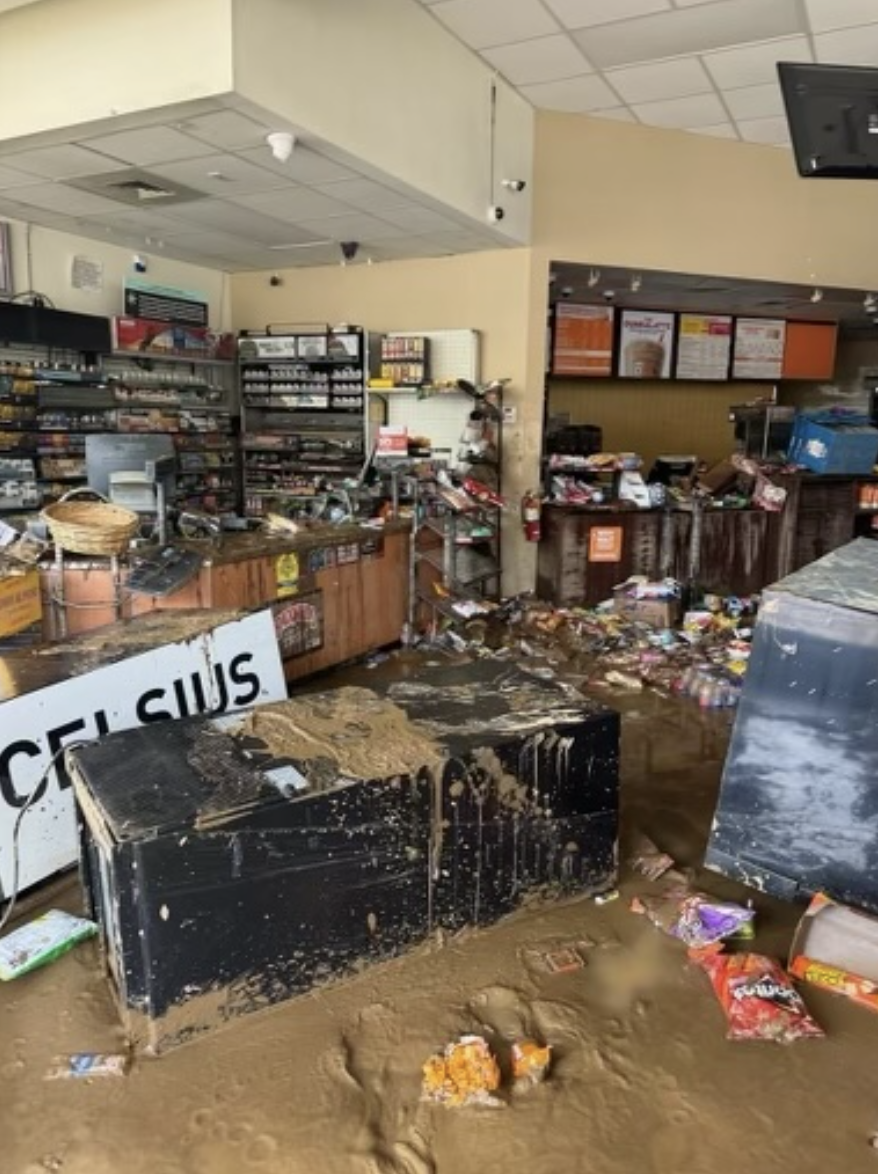Many on Wake Forest’s campus are grappling with the effects of Hurricane Helene, which caused devastation across Appalachia over the weekend. For several students who call Asheville home, their families are now navigating severe damage in their hometown.
“If someone … told me [last week] a hurricane would hit Asheville, I would say they were crazy,” Josie Vickory, a sophomore who is from the city, said.
On Thursday, Sept. 26 and Friday, Sept. 27, Hurricane Helene caused devastation across western North Carolina, eastern Tennessee and upstate South Carolina after making landfall as a Category 4 storm along the Gulf Coast of Florida. Helene raged as rain and wind swept through the Appalachian mountains, reaching North Carolina by Thursday night. Devastating floods ensued.
As of Oct. 8, the death toll across the southeast is over 230, including 119 in North Carolina. Helene is at least the fourth deadliest hurricane to hit the United States mainland since 1950.
A struggle to communicate
Although Helene weakened as it moved north, it still dropped over 20 inches of rain across much of western North Carolina, which, when combined with heavy rains during the week leading up to it, spelled catastrophe for the area. The storm’s impact was unimaginable to most residents, and the destruction was immense. At its peak, 4.5 million power outages occurred and, as of publication one week after the storm left the region, 757,000 persist, including over 200,000 in western North Carolina.
Senior Alice Wood, who was born and raised in Asheville, calls her mom every morning like clockwork. However, Helene’s impacts in western North Carolina have prevented the ritual.
Her parents do not have internet access. Through keeping up with her local newspapers and other statewide publications, Wood has been the messenger. Every post she sees on social media or news updates, she tries to convey to them via text.
Throughout the region, limited cell service has made it difficult for people to get in contact with friends or family members, particularly in remote areas. Loading pictures or videos is nearly impossible for most, and the local National Public Radio (NPR) affiliate station, Blue Ridge Public Radio, has even launched a text-only version of its website to make coverage more accessible.
Sophomore Zaina Singh, who moved to Asheville ten years ago, was supposed to go home last weekend to see her parents but was unable to because of the storm. As of Wednesday, Oct. 2, Singh’s parents still had limited cell service, but she was able to call them on Tuesday.
“Every part of the town that I knew, where I drove through in my 10 years of living there — it’s all gone,” Singh said. “Anyone who was in Asheville during the hurricane didn’t have cell service, so they didn’t really know what was going on. My parents didn’t know the level of destruction that had just happened, so they were telling me to come home, and I was like ‘I can’t come home, look at the news.’”
Severe damages leave several areas unrecognizable
On Friday morning, Vickory’s parents called to let her know that they wouldn’t be able to drive to Winston-Salem and that they were going to walk to her grandparents’ home to check on them. When Vickory’s parents arrived, they found out that her grandparents’ house was destroyed. A tree had collapsed on top of the roof, but thankfully they were able to escape safely.
According to a preliminary report from AccuWeather, the storm’s damages could total between $225 and $250 billion. The figure accounts for the loss of life, infrastructure repairs, healthcare costs, power outages, business and travel disruptions, a decrease in tourism and the loss of technology, including renewable energy.
Singh’s parents own restaurants and gas stations in Asheville. She said that her family’s restaurants seem to be fine, but the gas stations are “completely gone.”
Widespread outages and devastating damages have caused panic for many, according to Vickory.
“My mom said it is like a zombie apocalypse; everyone is in the streets crying and asking if they can get in touch with their kids or parents,” Vickory said.
Students grapple with the storm’s impacts while away from home
Being away from home amidst such an enormous tragedy has been difficult for many of the affected students.
“There’s this guilt inside of me, and also this sadness and frustration. Because what can I do? I’m so far away,” Wood said.
Singh felt similarly.
“I think [my parents] just don’t want me to worry about it. They want me to focus on school,” Singh said. “It’s still in the back of my mind, [and] I’m very fortunate that my family’s safe [and] my house is fine … and I know a lot of people can’t say the same thing.”
At Wake Forest, students from Asheville said that many of their friends and peers have reached out to them, but they’ve struggled to convey the enormity of the situation.
“The community has been really great [at Wake Forest]. I’ve gotten [an] overload of messages from friends, people in a lot of different sororities [and] people who I honestly am not close [with] at all,” Wood said. “I’m so glad [that I have received] a lot of overwhelming support, which also reassures [me that] people are aware of this and [that] it’s not a hidden thing.”
“I’m not really looking for [people’s] pity … [but] this is something that no one who isn’t from [Asheville] is ever going to understand,” Singh said. “I want people to know that it’s gonna take a long time for kids to recover from this and for this to not be in their heads 24/7.”
Despite the isolation that comes with being away from home amidst such a devastating tragedy, Singh has found comfort on campus by talking with other students from Asheville. She said that lots of people have posted about ways to help on social media, but that most of them are from western North Carolina and other affected areas.
“I just want [other students] to not forget about [Hurricane Helene]. I don’t want it to be one of those things where you post about it on social media for a week, and like, next week everyone’s moved on to the next thing,” Singh said. “This is something that’s gonna take months and months to rebuild and restore.”
This story was originally published on Old Gold & Black on October 9, 2024.







































